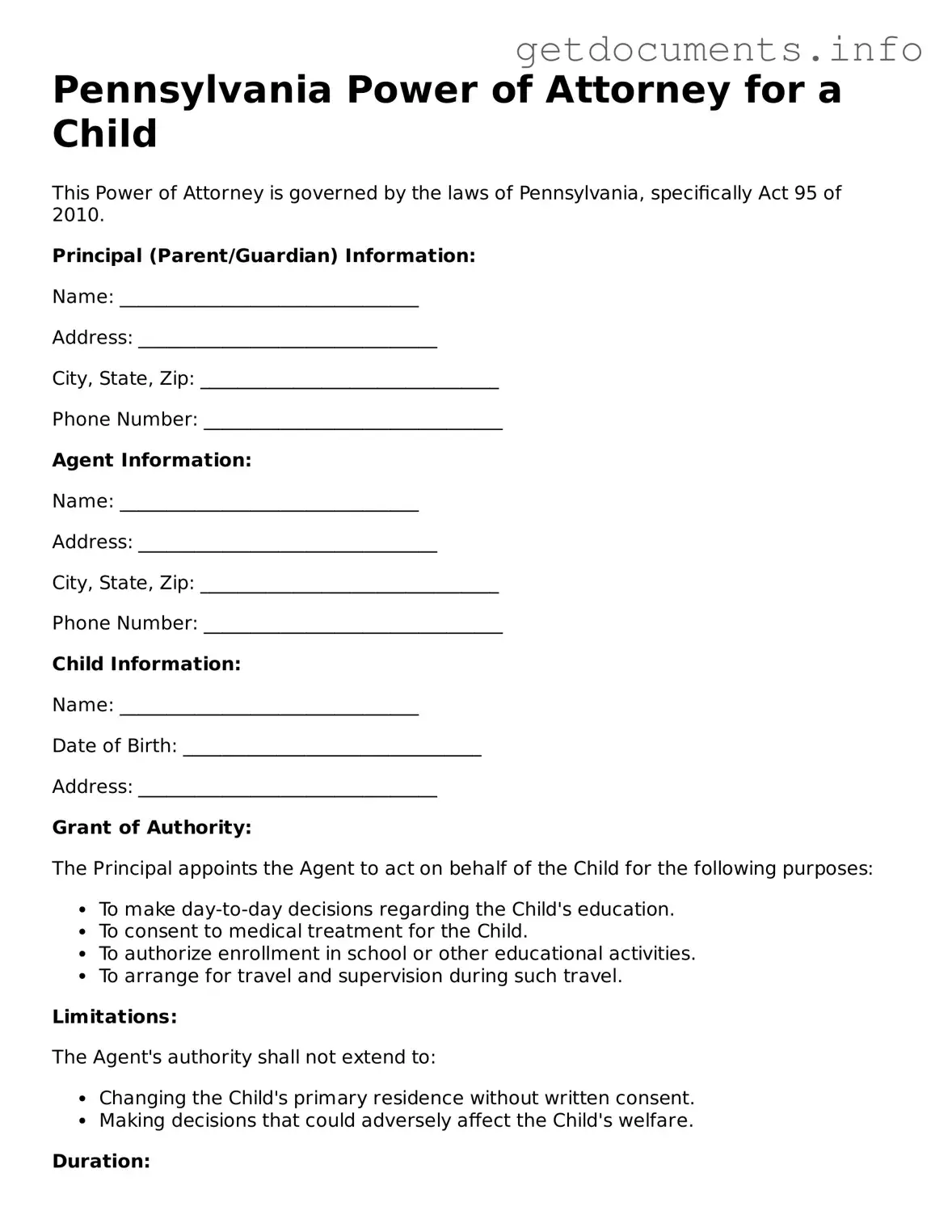Free Power of Attorney for a Child Template for Pennsylvania
The Pennsylvania Power of Attorney for a Child form is a legal document that allows a parent or guardian to grant another individual the authority to make decisions on behalf of their child. This arrangement can be particularly useful in situations where the parent is unavailable, such as during travel or extended absences. Understanding this form is essential for ensuring that your child's needs are met when you cannot be present.
To fill out the form, please click the button below.
Access Power of Attorney for a Child Editor

Free Power of Attorney for a Child Template for Pennsylvania
Access Power of Attorney for a Child Editor
Got places to be? Complete the form fast
Fill out Power of Attorney for a Child online and avoid printing or scanning.
Access Power of Attorney for a Child Editor
or
⇩ PDF File
